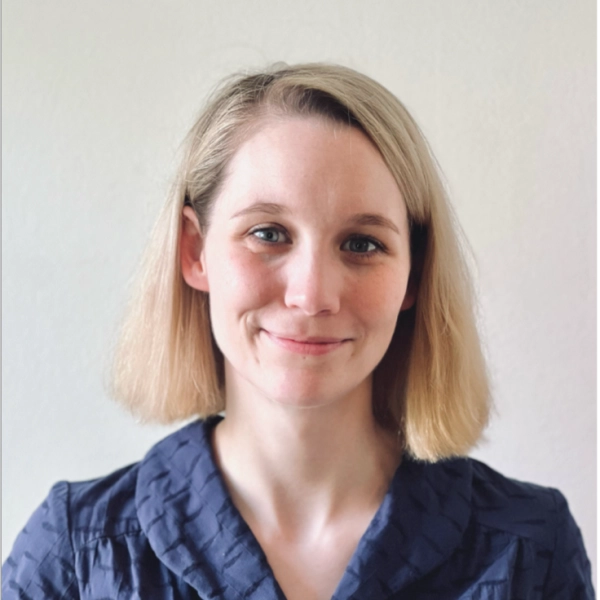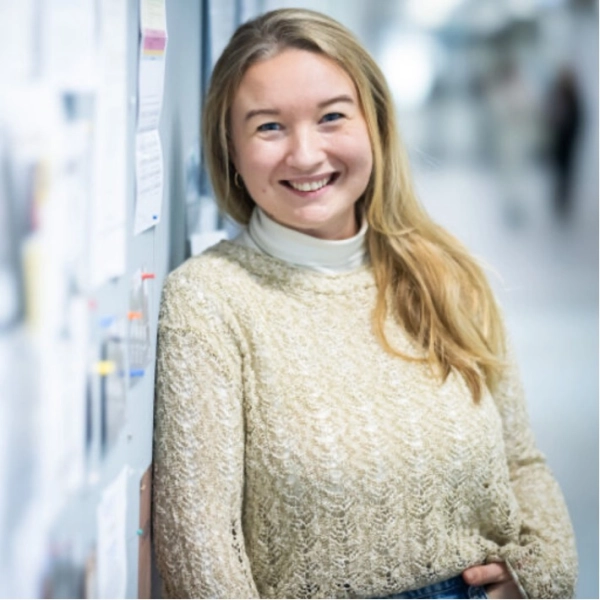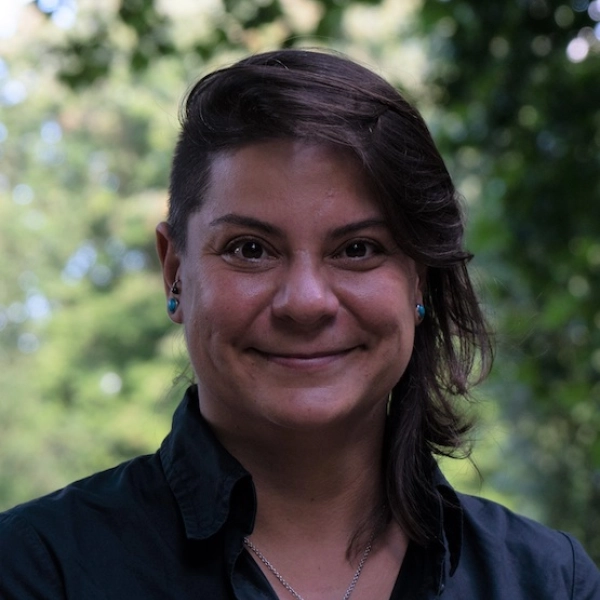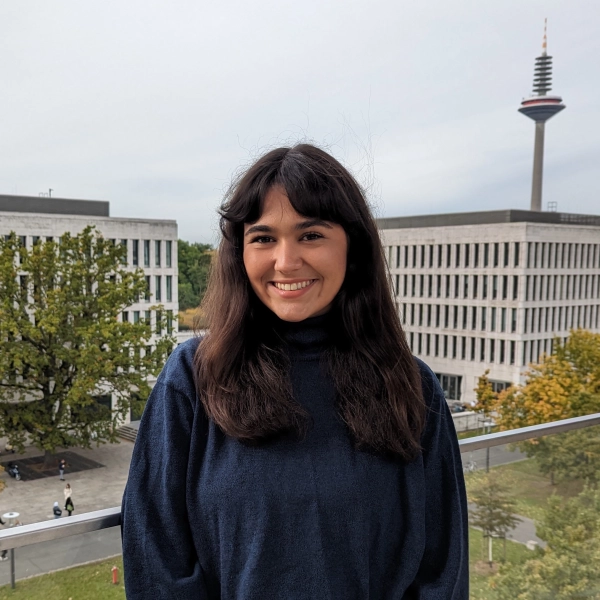About the Project
Here you will find information on the background, the research program and our team.
Background
In the Federal Republic of Germany, the social, political, and scientific engagement with the relationship between police work and discrimination has remained rudimentary for decades. Specifically, the issue of institutional racism within police work represents a significant gap. It was only in the context of public debates surrounding the NSU complex, the right-wing terrorist attacks in Halle and Hanau, and the exposure of racism and/or right-wing extremist networks and chats within police authorities that this problem began to receive greater public and academic attention.
Racism and other forms of discrimination concern society in its totality and should be examined in all their manifestations. The institution of the police holds particular significance in this regard, as its central task as an executive body is to enforce the state’s monopoly on the use of force and to protect the rule of law. On the one hand, police authorities thus play a central role in the preventive or repressive handling of discrimination. In other words, the police are a potentially important actor in the fight against racism. Consequently, discriminatory structures within police work negatively impact their protective and preventive functions towards those affected by racism and discrimination. On the other hand, the police can also act as a severe discriminatory agent. Unlike other (public) institutions, there is a particularly close connection between discrimination and infringements of fundamental rights, including physical violence, within the police. Additionally, their actions have a certain signalling effect on society.
So far, the prevalence of racist attitudes and corresponding discriminatory practices has only been partially researched within the police in Germany. Empirical research has mainly focused on assessing the attitudes of police officers (e.g., MEGAVO, DeWePol), while perspectives of those affected by racism have largely been overlooked. Furthermore, there are general surveys on discrimination that center the perspectives of those affected by racism and discrimination but that are usually not specifically focused on the police, nor can they delve deeper into related findings (e.g., NaDiRa 2023, Aikins et al 2021, Beigang et al 2017). The studies that do focus on racism within the police predominantly adopt a qualitative research approach (e.g., Berliner Polizeistudie) or are thematically limited to the issue of racial profiling (e.g., Müller/Wittlif 2023).
Against this backdrop, there is a research gap with regards to critical studies on racism that employ a multi-method approach and center on the perspectives of those affected by racism in encounters with the police. Such studies should be capable of making quantitatively reliable statements about the extent and structure of racist discrimination by the police, as well as providing qualitatively in-depth analyses of its significance for those affected. This research gap is substantial, especially considering that the discriminatory nature of social interactions cannot be simply deduced from an objective level but often only from the perceptions of those affected.
Robust knowledge about the frequency and nature of such incidents, as well as the perspectives of those affected, are of extraordinary relevance for understanding the role of the police in society and its relationship with marginalised groups and communities. It is also crucial for the further development of professional police work, managing the consequences of discriminatory behaviour, and devising solutions for related problems.
Research Program
Against this background, the research project “RaDiPol” aims to address the following questions:
What experiences do individuals have with racist discrimination by the police, and how do these manifest concretely?
What are the consequences of these experiences of discrimination for the affected individuals’ relationship with the police and society?
How does the police handle cases of racism, and what measures are taken to counteract racist discrimination?
What differences and similarities exist in the perceptions of racism within the police compared to those of the affected individuals and the general population?
To answer these questions, quantitative and qualitative methods will be combined in three central work packages:
Representative Quantitative Survey
The core of the project is a representative quantitative survey of the population aged 16-49 in selected major cities in East and West Germany. The sample is designed as a city-based random sample from resident registration records. Police-related experiences and attitudes will be captured using standardised questionnaires, with several survey modes offered (primarily online, alternatively by post). The target is a net sample of approximately 20,000 respondents (4,000 per city). The survey will be conducted by the opinion research institute IFAK.
The survey aims to gain insights into experiences with racist, group-based, and discriminatory attitudes and actions by the police, as well as the resulting interaction situations. Beyond demographic characteristics and discrimination attributes, the survey will specifically address:
General attitudes and views towards the police
Frequency of contacts with the police, nature and quality of the most recent police contact
Timing and frequency of personal experiences with racist discrimination by the police
Context, intensity, course, and outcome of the most recent discriminatory incident, and type of discriminatory behaviour
Consequences and impacts for those affected, their sense of social belonging, and trust in the police (and other institutions), their legitimacy, and the resulting willingness to cooperate.
Qualitative Expert Interviews
To supplement the results of the representative survey of affected individuals, in-depth qualitative interviews will be conducted with experts working in advisory centres, self-organisations, and supporting or thematically focused organisations and initiatives (e.g., migrant and community self-organisations). These interviews aim to deepen and expand the perspectives of those affected and address issues that cannot be captured through the quantitative survey. These include, for example, deeper insights into the psychosocial, professional, or legal consequences faced by those affected, as well as the individual or collective strategies they employ in response to discrimination experiences.
In this way, the limitations of quantitative research can be counteracted. The advantage of quantitative surveys lies in their ability to provide insights into the extent and distribution of perceptions and experiences. Standardised questionnaires enable comparability and, through representativeness, generalisability. However, the categorical constraints of quantitative surveys also limit their explanatory power, as the motivations, understandings, and contexts of respondents cannot be deeply captured. An additional challenge in conducting the quantitative survey of affected individuals is that certain groups, particularly vulnerable and thus more susceptible to discrimination, are difficult to reach for a representative survey. These include, for example, people without a fixed abode, undocumented individuals, or those in state care (prison inmates, refugees in communal accommodation, individuals in psychiatric facilities, etc.).
Focus Group Interviews with Police Officers to Consider the Police Perspective
Additionally, focus group interviews with police officers from the relevant major cities and various federal states will be conducted to incorporate the police perspective into the project. These moderated group discussions aim to provide empirical insights into the causes, dynamics, interaction patterns, and handling of (potentially) relevant incidents.
The officers’ perspective will be compared with the survey of affected individuals to determine the relationship between respective perceptions and their differences or similarities. Furthermore, the study will examine how police officers, and the police as an organisation, deal with the issue. Of particular interest is their understanding of racism and discrimination. This research method is particularly suitable for examining the process of collective interpretation of situations and other group dynamic processes that play an important role in police work.
Team

Prof. Dr. Tobias Singelnstein Project Leadership E-Mail: singelnstein@jur.uni-frankfurt.de
More about Prof. Dr. Tobias Singelnstein
Tobias Singelnstein is a Professor of Criminology and Criminal Law in the Department of Law at Goethe University Frankfurt. His research focuses on criminology (including social control and society, AI in social control, empirical police research, and the foundations of criminal social control) as well as criminal law and criminal procedural law (including investigative measures and evidentiary law, data processing in criminal proceedings, and criminal law in the context of digitalization). He regularly conducts a range of third-party funded projects in these areas. In addition to publishing over 80 articles in academic journals, he has authored several monographs on topics in these fields and edited a number of collected volumes.

Prof. Dr. Eva Groß Project Leadership E-Mail: eva.gross@poladium.de
More about Prof. Dr. Eva Groß
Prof. Dr. Eva Groß studied sociology in Munich and international criminology in Hamburg and earned her doctorate in 2016 from the Faculty of Sociology at Bielefeld University. From 2008 to 2015, she worked as a research associate at the Institute for Interdisciplinary Research on Conflict and Violence at Bielefeld University. From 2015 to 2018, she was a research associate at the Criminological Research Center of the Lower Saxony State Criminal Police Office, before taking up a professorship in criminology and sociology at the Academy of the Police in Hamburg in December 2018. Her research focuses on group-based enmity, bias-motivated crime (hate crime), victimization/dark figure of crime, (online) radicalization, policing, perceptions of crime, the economization of social relations, institutional anomie, and social inequality.

Dr. Tanita Jill Poeggel Researcher E-Mail: poeggel@em.uni-frankfurt.de
More about Dr. Tanita Jill Poeggel
Jill Pöggel works as a research associate at Goethe University Frankfurt. Previously, she worked for the “National Discrimination and Racism Monitor” (NaDiRa) at the German Center for Integration and Migration Research (DeZIM Institute) from 2021 to 2024. There, she focused on advisory structures and led a research project funded by the Federal Anti-Discrimination Agency (ADS) titled “Access and Evaluation of Anti-Discrimination Counseling by Affected Persons.” In 2021, she completed a Ph.D. at the University of Edinburgh on refugee solidarity in the Federal Republic of Germany in the 1980s. She studied social sciences at Humboldt University in Berlin and the New School for Social Research in New York City.

Amelie Nickel Researcher E-Mail: amelie.nickel@poladium.de
More about Amelie Nickel
Amelie Nickel has been a research associate at the Academy of the Police in Hamburg since March 2024. She studied sociology at the Otto Friedrich University in Bamberg and the University of Hamburg. From 2021 to 2024, she was a research associate at the Institute for Interdisciplinary Research on Conflict and Violence (IKG) and pursued her Ph.D. at the Leibniz ScienceCampus “SOEP-RegioHub” at Bielefeld University. Since 2022, she has been a member of the Bielefeld Doctoral Program in History and the Faculty of Sociology. In her dissertation, she examines social and institutional economization processes and their political and social impacts. Her research interests, in addition to quantitative social research methods, include anomie, prejudice and discrimination studies, and comparative political science research.

Dr. Anabel Taefi Researcher E-Mail: anabel.taefi@poladium.de
More about Dr. Anabel Taefi
Anabel Taefi studied sociology in Berlin and Hamburg. From 2008 to 2009, she worked as a research assistant at the Criminological Research Institute of Lower Saxony, and from 2009 to 2018, she was a research associate in teaching and research in the field of “Criminology and Interdisciplinary Crime Prevention” at the German Police University in Münster. Since 2018, she has worked in criminology at the Academy of the Police in Hamburg. In 2022, she received her Ph.D. from the University of Hildesheim with a dissertation titled “Serious Delinquency Patterns – On the Influence of Risk and Protective Factors on the Development of Crime Among Adolescents and Young Adults.” Currently, she serves as a trusted academic advisor for students.

Dr. Ilka Kammigan Researcher E-Mail: ilka.kammigan@poladium.de
More about Dr. Ilka Kammigan
Ilka Kammigan studied international criminology at the University of Hamburg and completed her Ph.D. there in 2017. From 2009 to 2017, she worked as a research associate on various projects, including multiple international and regional dark figure studies on youth delinquency (University of Hamburg, Institute of Criminal Sciences, Criminology Department) and a project on corruption in social welfare (Münster University of Applied Sciences, Department of Social Work). Since 2017, she has worked as a postdoc in empirical social research methods and statistics at the Helmut Schmidt University in Hamburg. Since 2021, she has also been a research associate at the Academy of the Police in Hamburg.

Hannah Espín Grau Researcher E-Mail: espingrau@jur.uni-frankfurt.de
More about Hannah Espín Grau
Hannah Espín Grau studied Political Science and Law in Münster and is now a Research Associate at the Chair of Criminal Law and Criminology at Goethe University Frankfurt. Together with Laila Abdul-Rahman, Tobias Singelnstein, and Luise Klaus, she conducted the DFG-funded research project “KviAPol” (Bodily Harm in Office by Police Officers) until 2023. She is pursuing her PhD on police and judicial narratives surrounding police violence and is a scholarship holder of the Rosa Luxemburg Foundation.

Helene Spieles Research Assistant E-Mail: spieles@jur.uni-frankfurt.de

Dennis Özmen Research Assistant E-Mail: oezmen@jur.uni-frankfurt.de
Arina Reich Research Assistant E-Mail: Arina.reich@poladium.de
Advisory network
Laila Abdul-Rahman, Goethe-Universität Frankfurt a.M./ Deutsches Institut für Menschenrechte, Berlin
Manuela Bojadžijev, Humboldt-Universität zu Berlin
Nicole Broder, Bildungsstätte Anne Frank, Frankfurt a.M.
CLAIM (Allianz gegen Islam- und Muslimfeindlichkeit)
Cuso Ehrich, Korientation
Markus End, Zentrum für Antisemitismusforschung, TU Berlin
Joachim Häfele, Polizeiakademie Niedersachsen
Wilhem Heitmeyer, Institut für interdisziplinäre Gewalt- und Konfliktforschung, Universität Bielefeld
Daniela Hunold, Hochschule für Wirtschaft und Recht, Berlin
Astrid Jacobsen, Polizeiakadamie Niedersachsen
Juliane Karakayali, Evangelische Hochschule Berlin
Heike Kleffner, Verband der Beratungsstellen für Betroffene rechter, rassistischer und antisemitischer Gewalt
Doris Liebscher, Ombudsstelle für das Berliner Landesantidiskriminierungsgesetz
Robert Linke, Deutsche Hochschule der Polizei, Münster
Paul Mecheril, Universität Bielefeld
Thomas Müller, Interkultureller Trainer, Bremen
Tobias Neuburger, Zentralrat Sinti und Roma
Sermin Riedel, unabhängige Polizeibeauftragte für die Freie Hansestadt Bremen
Samiah El Samadoni, Beauftragte für die Landespolizei Schleswig-Holstein
Kai Seidensticker, LKA NRW
Vassili Tsianos, Fachhochschule Kiel
